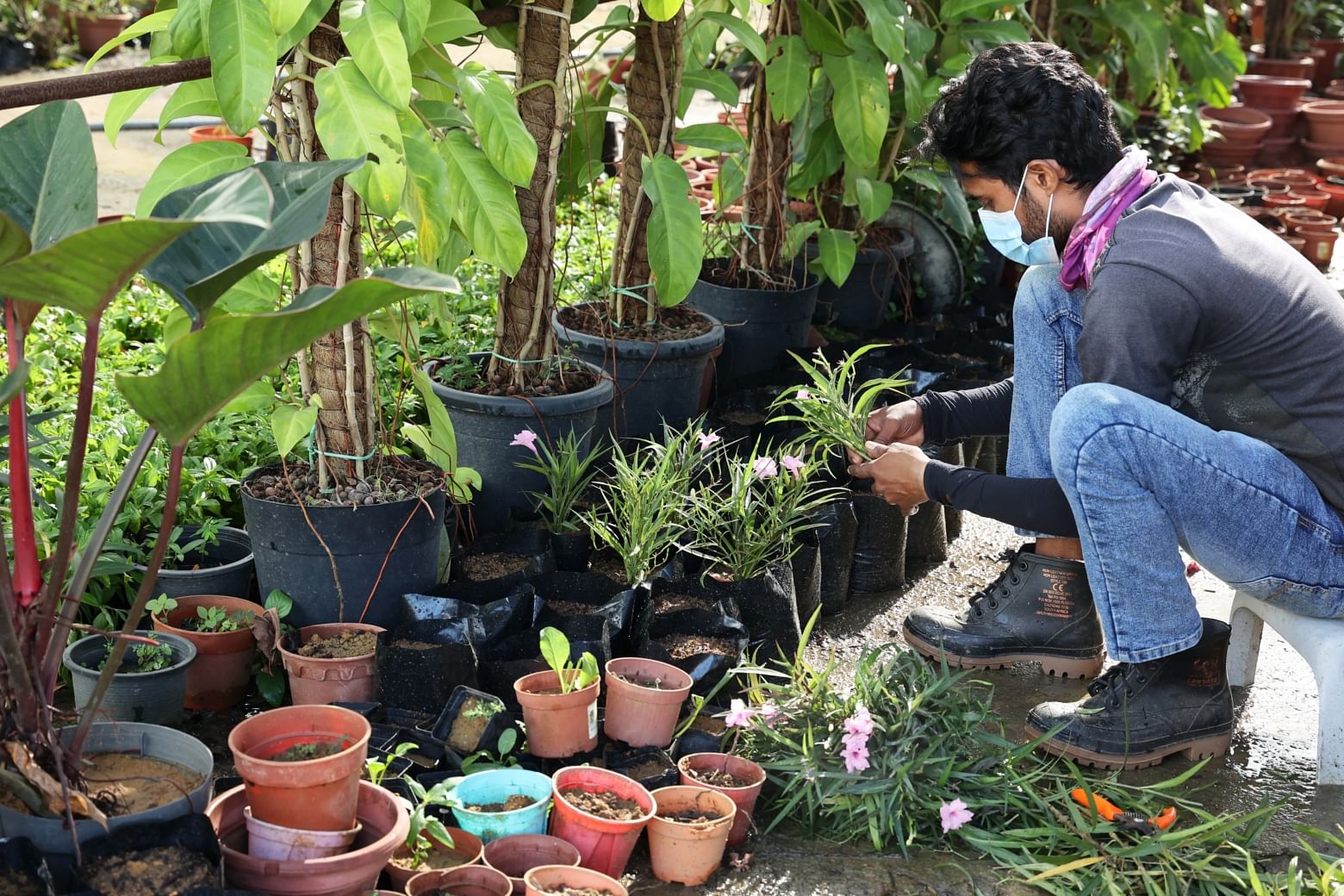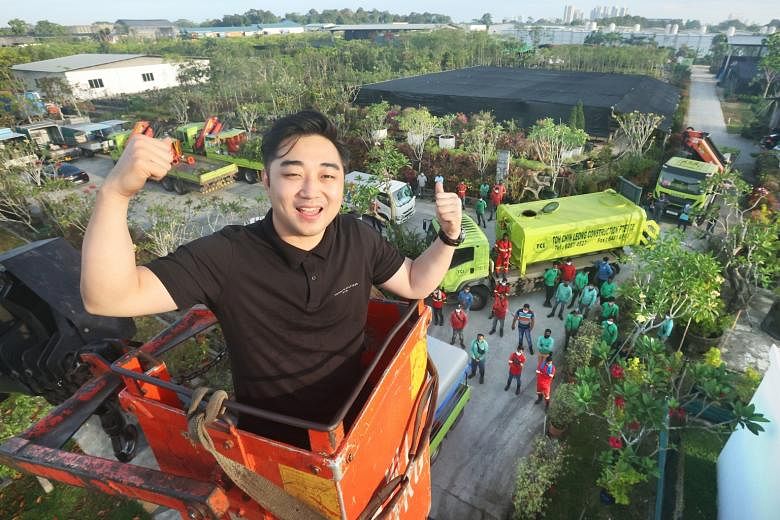Mr Edmund Toh braced for the worst when Singapore implemented its “circuit breaker” in 2020, forcing migrant workers to be confined to dormitories amid viral Covid-19 outbreaks.
“We were expecting business to come to a standstill. We thought things would be really bad,” says the executive director of local landscaping firm Toh Chin Leong Construction. His family owns the company.
Migrant workers comprise a significant portion of Toh Chin Leong’s approximately 500 staff. The rest of the employees are older Singaporeans aged 55 and above; the oldest is 78.
But something wonderful occurred.
Without being asked, the firm’s older local staff took on the daily maintenance work normally done by their younger foreign colleagues. With the help of automated tools, they kept clients’ sites clean, removing fallen leaves and stagnant water to prevent mosquitoes from breeding.
“I was surprised, impressed, and so thankful,” Mr Toh, 31, says, adding that the firm rewarded the workers. “That’s when I realised: all the mechanisation training we did over the past few years had come back to help us.”
Nurturing employees
Since 2015, Toh Chin Leong has been training its staff to use machinery such as handheld electric blowers and mechanised hedge trimmers to execute landscaping tasks traditionally done by hand.
It also sent its staff for courses – such as landscape operations and operations supervision – at the Centre for Urban Greenery and Ecology, a division of the National Parks Board that focuses on industry development initiatives, training programmes and research.
“We wanted to take advantage of the substantial cost savings from SkillsFuture Singapore’s subsidies,” Mr Toh says. “So we looked at relevant courses we could encourage staff to attend.”
SkillsFuture Enterprise Credit provides eligible employers a one-off credit of $10,000 to cover up to 90 per cent of out-of-pocket expenses for supported enterprise development and workforce transformation programmes.
Among the 30 credit-deductible courses Toh Chin Leong staff have attended include those on chainsaw safety and maintenance and hydraulic excavator operations.
In the beginning, these initiatives faced stiff resistance, as staff feared being replaced by machines. Others were upset at being told what to do. “Some gardeners said: ‘I’ve been doing this for 20 years. Why do I have to change? Who are you to teach me?’” Mr Toh recalls.
The firm persisted with upskilling efforts, and its workers gradually realised the increased productivity meant longer lunch and tea breaks. They are now happier and more receptive to changes in their workflow, he says.
Productivity also increased by about 30 per cent, allowing the firm to take on more jobs.
Mr Toh’s current goal is to integrate robots such as autonomous lawn mowers into work processes, which will free up staff to perform value-added tasks like planting shrubs. This shift has been well received by Toh Chin Leong’s clients, who appreciate the company’s forward-thinking mindset.

In 2020, the firm decided to kickstart its own in-house training programme.
It sent its general manager and two operations managers to “train-the-trainer” courses run by the Institute for Adult Learning, an autonomous institute under the Singapore University of Social Sciences, and the Institute of Technical Education (ITE), and turned a former office space in its nursery into a classroom.
“External courses have limited slots, and when the pandemic hit, all courses were halted,” explains Mr Toh. “We wanted to continue staff upskilling, so we accelerated in-house training efforts.”
The three managers, who now double up as trainers, take turns to run courses on safety and machinery on weekends. Staff are paid to attend the training, while the trainers are rewarded with an allowance and leave days.
To focus these upskilling efforts, operations managers hold weekly performance meetings with supervisors and staff to identify the skill gaps of each employee. If a large enough group requires training for the same skill, the trainers will run half-day courses to reinforce those skills.
Between 2020 and this year, about 150 staff have attended at least one training session.
“We can see a difference after the training,” says Mr Toh. “The staff perform better, and managers know this will make their work easier in the long term.
“We want to give all our people the chance to upskill and be deeply rewarded, as long as they are motivated to do so.”

Landscape supervisor Chan Hock Chai, for one, has attended various training courses, both in-house and conducted by external organisations.
“After the courses, I feel that we gain more knowledge about our jobs and how we can complete our jobs faster and easier with machines. We also receive certificates, which is good,” the 64-year-old says in Mandarin. “If there are future courses, I will gladly join.”
Attracting fresh talent
Beyond helping staff upskill, Mr Toh also has his eye on ensuring a pipeline of fresh talent to keep business sustainable in the long term.
“Almost everyone local here is in their sixties,” he laughs. “There are very few young gardeners.”
To ensure an inflow of talent, Toh Chin Leong is one of the participating organisations of the SkillsFuture Work-Study Diploma in Arboriculture and Horticulture, which prepares ITE students for careers as arborists (tree doctors) or horticulturists, who oversee landscapes and plant health.
Under the programme, which is part of Singapore’s efforts to transform into a City in Nature, students work at the firm four days a week, and attend lessons on Fridays.
They receive on-the-job training spanning landscape operations, maintenance and the application of mechanisation and automation technologies. They also shadow an operations manager to learn about the day-to-day running of the firm, including scheduling jobs and liaising with clients.
“The landscaping industry is not popular among local students,” says Mr Toh, who has a degree in finance and economics, and obtained an arborist certification in preparation for the role.
“Few want to join right off the bat. We’re hoping to ignite a passion for this industry among younger Singaporeans,” he adds.
The first batch of ITE students working at Toh Chin Leong under the Work-Study Diploma will graduate next year, and Mr Toh is hoping that some will be inspired to join the firm.
“Fingers crossed,” he says with a smile.
This is the third of a four-part series titled "Skill up to scale up" in partnership with SkillsFuture Singapore

